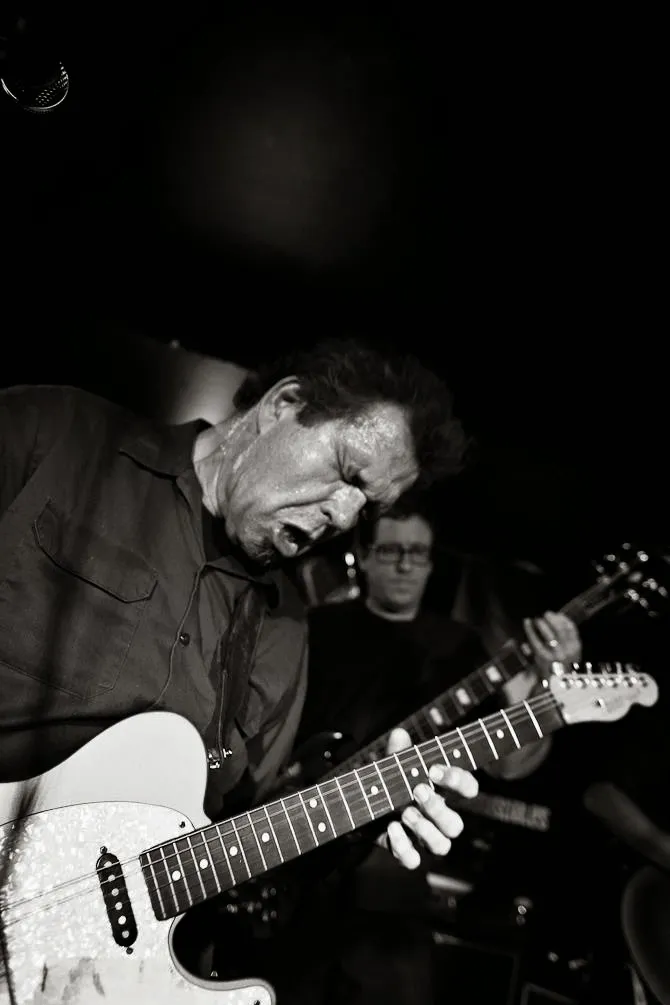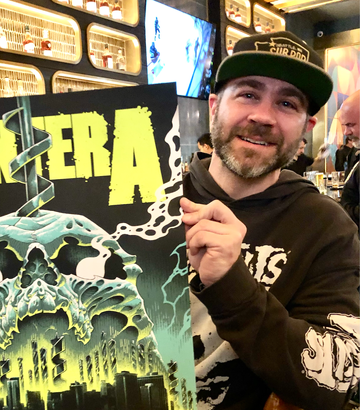When asked about Mario Lalli while being interviewed for a documentary about the desert rock scene he grew up in, Josh Homme of Kyuss and Queens of the Stone Age fame described him this way:
“Mario is the one guy who I always thought deserved the most credit for everything. He was always a few years ahead of his time… He’s always had this way about him – he’s very giving, he’s always done everything for the right reasons, for the art of it, for the love of it, and expecting nothing.”
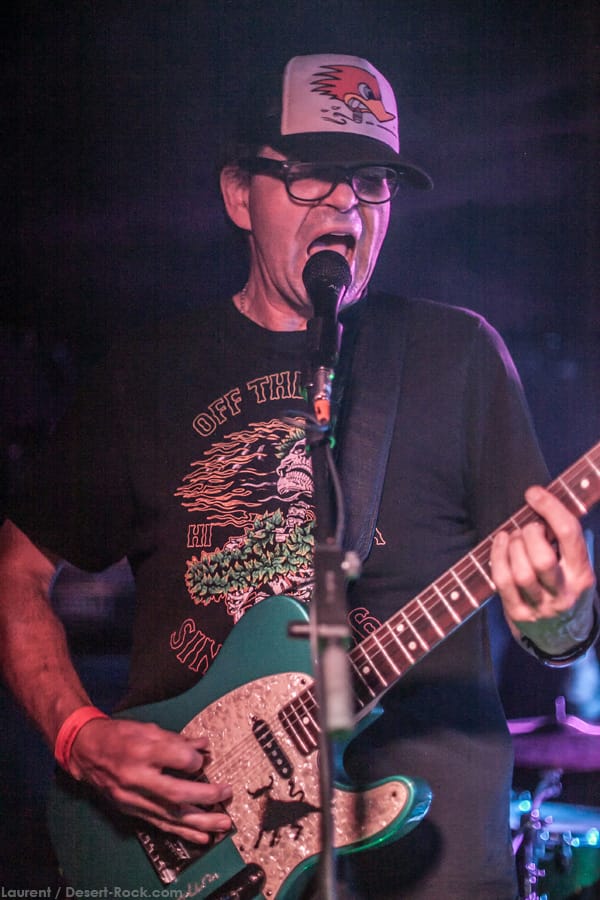
Though he’s ambivalent about the Godfather of Desert Rock moniker that's been bestowed on him, you would be hard pressed to find a musician from the Palm Desert scene who doesn’t cite Mario as the driving force behind the now legendary genre of music spawned there. Whether through his playing in bands like Across the River and Yawning Man, buying the generator that powered the now mythic live shows in the desert, opening his own restaurant (Rhythm and Brews) to double as a live venue for the scene’s groups, or offering the younger generation of musicians a place to rehearse in his own garage, his dedication, influence, and contributions to the now famous stoner rock genre in its infancy are immeasurable.
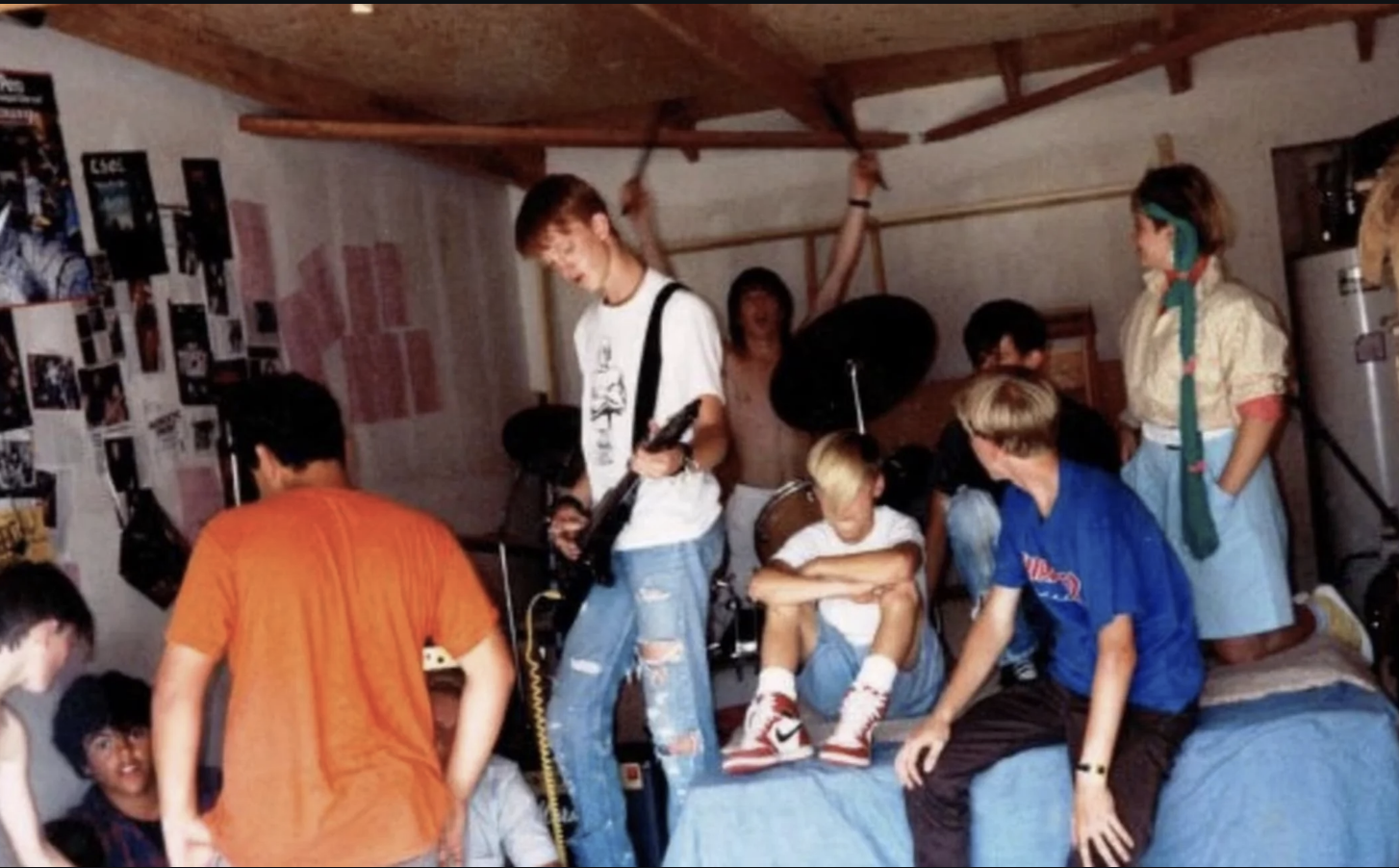
After meeting Mario at a Brant Bjork Trio show in Ridgewood, Queens, I asked him for a picture and if I could interview him sometime. He emailed me right there on the spot while working the merch booth, before taking the stage. We spoke about a wide range of topics, including:
- the recent Stateside Boogie tour with Brant Bjork (Kyuss, Fu Manchu), the release of their new record Once Upon a Time in the Desert and the relaunch of Duna Records, his longtime collaboration history with Brant, and the delicate relationship between art and commerce.
- his incredibly influential band Across the River who paved the way for Kyuss to emerge, opening for D.R.I. and Saint Vitus, and why the grouo never ended up releasing anything official despite being in talks with famed punk label SST.
- the emphasis bands in the desert scene placed on playing live as opposed to recording, the origin of generator parties in the desert, and why they eventually became a thing of the past.
- the early days of Queens of the Stone Age, touring Europe with them and opening for The Smashing Pumpkins, and writing the lyrics and singing the early version of “You Think I Ain’t Worth a Dollar, But I Feel Like a Millionaire” from Songs for the Deaf.
- a reflection on what it means for a scene he worked so hard in to become so well-known and famous worldwide, and gratitude for being able to do something he loves for a living.
You can view the entire interview HERE:
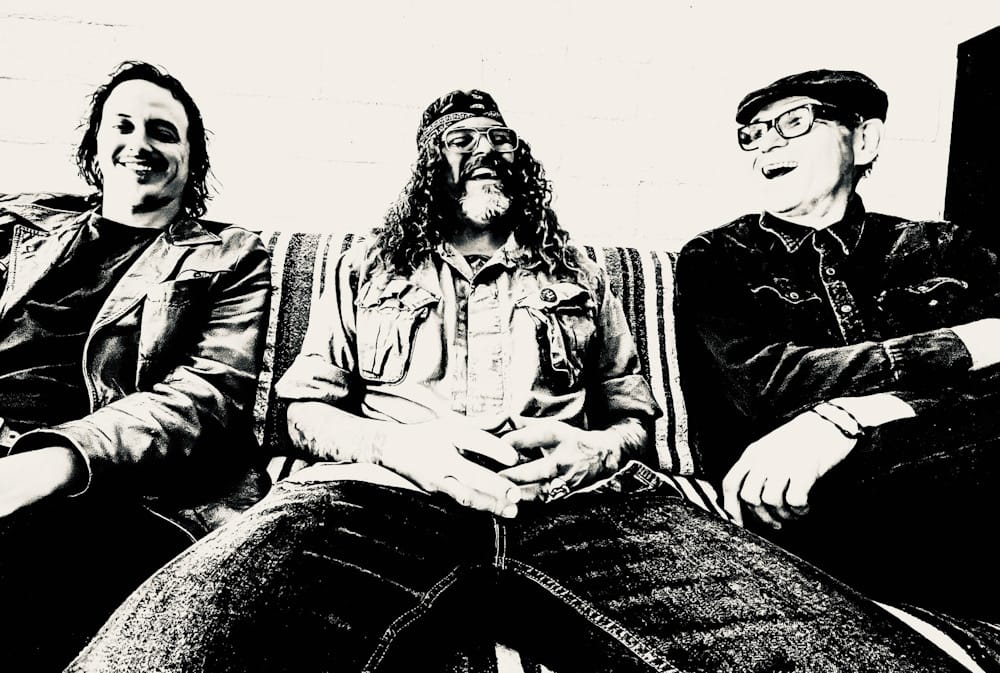
Speaking with Mario, it’s obvious that all the work he’s done to promote his music and the music of others around him was and continues to be done with a level of authenticity that’s impossible to fake. It may have taken him a little more time to receive that praise and success than others from the same scene that he deserved, but I bet if you asked him, it wouldn’t really make a difference one way or the other. His passion for his art and being able to create music is reason enough for him to do it, regardless of how many people are listening.

